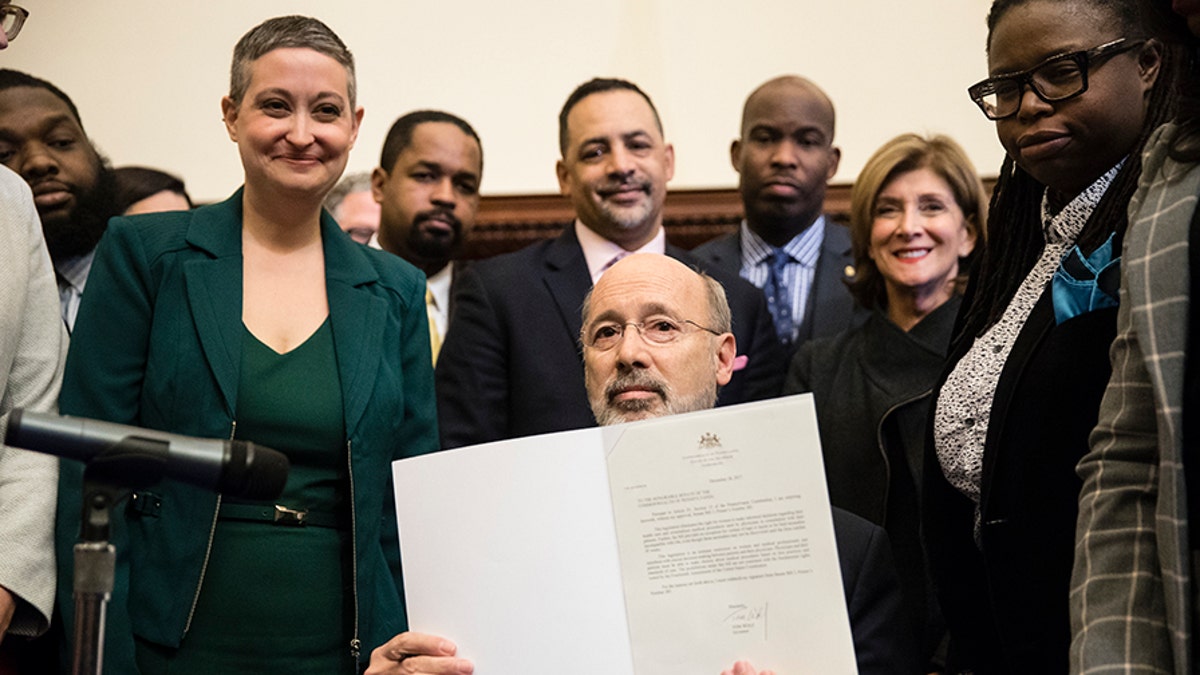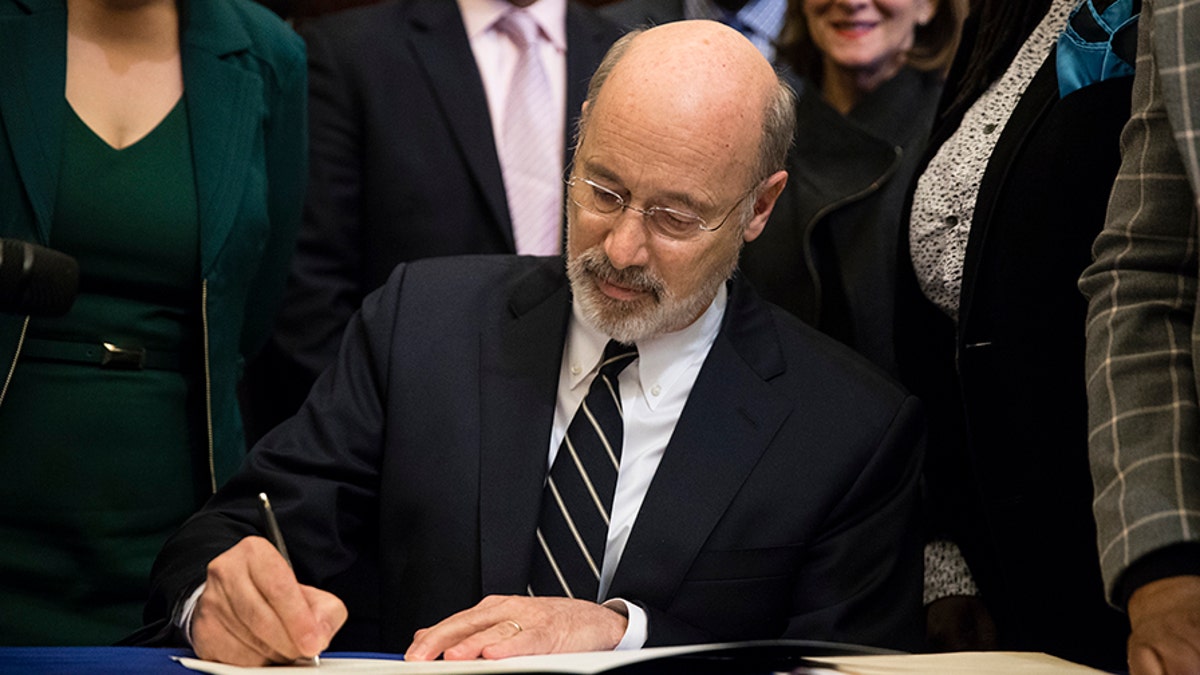
Pennsylvania Gov. Tom Wolf displays his signature after vetoing a bill passed by the Republican-controlled Legislature to limit abortions to the first 20 weeks of pregnancy at City Hall in Philadelphia, Monday, Dec. 18, 2017. (AP Photo/Matt Rourke)
Pennsylvania Gov. Tom Wolf, a Democrat, vetoed a bill on Monday that would have added more restrictions to abortions in the state.
The bill, which would have limited abortions to the first 20 weeks of pregnancy, had passed in the Republican-controlled legislature.
Wolf, a supporter of abortion rights, called the bill "a disingenuous and bald-faced attempt to pass the most extreme anti-choice legislation in the country."
Wolf told a crowd at Philadelphia City Hall, "This legislation is an attempt to criminalize the decisions that women must be allowed to make about their own health care."

Pennsylvania Gov. Tom Wolf vetoes a bill passed by the Republican-controlled Legislature to limit abortions to the first 20 weeks of pregnancy at City Hall in Philadelphia, Monday, Dec. 18, 2017. (AP Photo/Matt Rourke)
The bill’s main feature called for a ban on elective abortions after 20 weeks from a pregnant woman’s last menstrual period – compared to 24 weeks in current law.
The 20-week limit would have kept in place exceptions under current law for when a mother's life or well-being is at risk, but it had no exceptions for rape, incest or fetal abnormalities. Nineteen states have a similar ban, according to the nonprofit research group Guttmacher Institute.
GOP REP. TIM MURPHY RESIGNS AFTER REPORTS HE ASKED MISTRESS TO GET ABORTION
State Sen. Michelle Brooks, who sponsored the bill, said she was disappointed Pennsylvania "will be unable to protect so many babies in the future, who will never know the joy of living." She noted that a baby can survive outside the womb before 24 weeks due to advances in technology, and she argued that laws must catch up.
The American Congress of Obstetricians and Gynecologists reports that delivery before 23 weeks of gestation typically results in death.
Planned Parenthood said the proposed abortion law would have been the most restrictive in the U.S.
The bill also would have effectively banned dilation-and-evacuation, the most common method of second-trimester abortion, opponents said. Brooks argued that the bill does not ban the procedure, but rather, the fetus must first be injected by saline to cause its death. There were 1,588 dilation-and-evacuation abortions in Pennsylvania in 2015, according to state statistics.
The American Congress of Obstetricians and Gynecologists says there is no evidence that inducing fetal death makes second-trimester abortions safer, and opponents have questioned whether such an injection makes it less safe for the mother.
The bill was opposed by the Pennsylvania Medical Society and the Pennsylvania section of the American Congress of Obstetricians and Gynecologists.
The Associated Press contributed to this report.












































